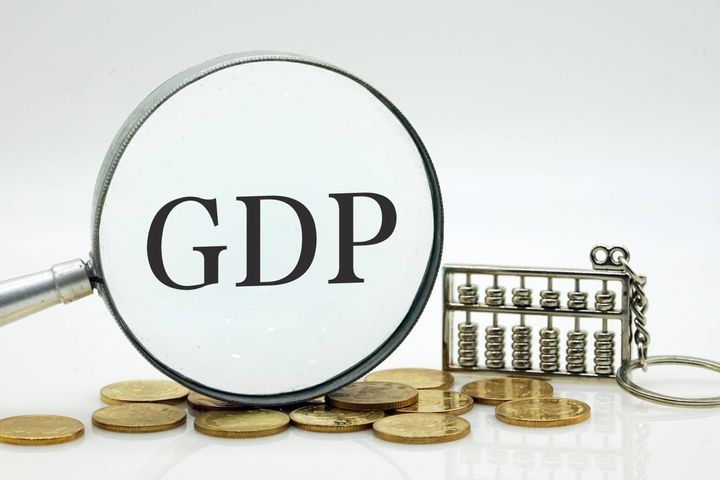 Chief Economists' Opinions on China's 2019 GDP Growth Goals
Chief Economists' Opinions on China's 2019 GDP Growth Goals(Yicai Global) March 6 -- China aims to achieve economic growth of between 6 percent and 6.5 percent this year through tax cuts, a proactive fiscal policy and a prudent monetary policy, Chinese Premier Li Keqiang said in the government's annual work report.
Li delivered the report yesterday during the Two Sessions, which is widely regarded as China's biggest political event of each year. It involves the concurrent annual meetings of the country's national legislature, the National People's Congress, and its top political advisory body, the Chinese People's Political Consultative Conference.
Below are some of the opinions on the report from chief economists and researchers across China.
Cheng Shi, chief economist at ICBC International
China's economic development will feature slower growth but greater quality this year, according to Cheng.
The expansion target is lower than last year but with a broader scope he said, adding that this indicates uncertainty in economic situations at home and abroad but also understanding of internal and external risks and opportunities.
Economic policies will be more flexible this year to ensure a new wave of reform and opening up while maintaining short-term growth to lay the foundations for longer-term expansion, Cheng added.
Cutting value-added and manufacturing taxes highlights the focus on high-end development of Chinese production while the deficit rate increasing to 2.8 percent provides enough space for infrastructure investment, he continued. Monetary policy should maintain reasonable liquidity and the establishment of multi-level capital markets and financial supervision should make financial markets the leader in China's economic transformation.
Cheng believes China will near the top end of its target range this year thanks to more stable growth and risk prevention.
Zhang Ming, chief economist at Ping An Securities
The 2019 economic growth target is more flexible than before, Zhang believes, saying the figure is in line with market expectations of 6.2 percent to 6.3 percent expansion under slightly relaxed macro policies.
The target figure shows the central government has increased its tolerance for the downsides of macroeconomic growth, which is also an indicator that it is an easy goal to achieve, he added, saying this means monetary and fiscal policies will be eased by only a limited amount.
Beijing is trying to maintain a reasonable balance between risk control and stable growth rather than relying on the strong stimulus of macro policies, he added, saying this means real estate regulation in first- and second-tier cities is unlikely to lighten this year. Achieving the growth target will rely on infrastructure rather than real estate investment, Zhang said.
Plans to reduce manufacturing VAT to 13 percent from 16 percent and cut employer contributions to basic pension insurance in urban areas were greater than forecast, he continued, saying market expectations were that VAT would be cut by 2 percentage points. The cut is important for Chinese companies, particularly small- and medium-sized enterprises, Zhang said, adding that the unprecedented cuts will increase industrial profits, boost SME confidence and better achieve the cost reduction goals of the supply-side structural reform.
He believes the changes will play a positive role in stabilizing growth of manufacturing and private capital investment.
Guan Qingyou, dean and chief economist at Rushi Financial Research Institute
Guan expects the tax reduction to boost corporate confidence.
The GDP growth target implies the government is prioritizing high-quality development, he said. The new goal is more pragmatic and the 2.8 percent fiscal deficit rate, which was appropriately cut by 0.2 point means there is no need to increase the rate substantially, Guan added.
Tax cuts in major industries, including slashing the VAT in manufacturing to 13 percent and in transport and construction to 9 percent from 10 percent, will have a direct impact on the economy, he believes. Using the term 'continued tax reduction' in the work report will bolster entrepreneurial confidence and reduce the burden on enterprises once the changes come into effect, but it will be difficult to implement as this needs a reform of party and state institutions, Guan said.
Wen Bin, chief researcher at China Minsheng Bank
Moderate inflation saves room for monetary policy, according to Wen.
Setting the consumer price index at 3 percent is in line with economic fundamentals, he said, adding that there is little pressure for inflation to rise too high this year.
External bulk commodity prices should remain stable amid a slowdown of global expansion, which will keep import prices down, Wen continued. Internally, the central government is focusing on agriculture and increasing investment in farming infrastructure to stabilize food production and keep prices level. CPI inflation is generally manageable, though some vegetable prices may fluctuate by season, he said.